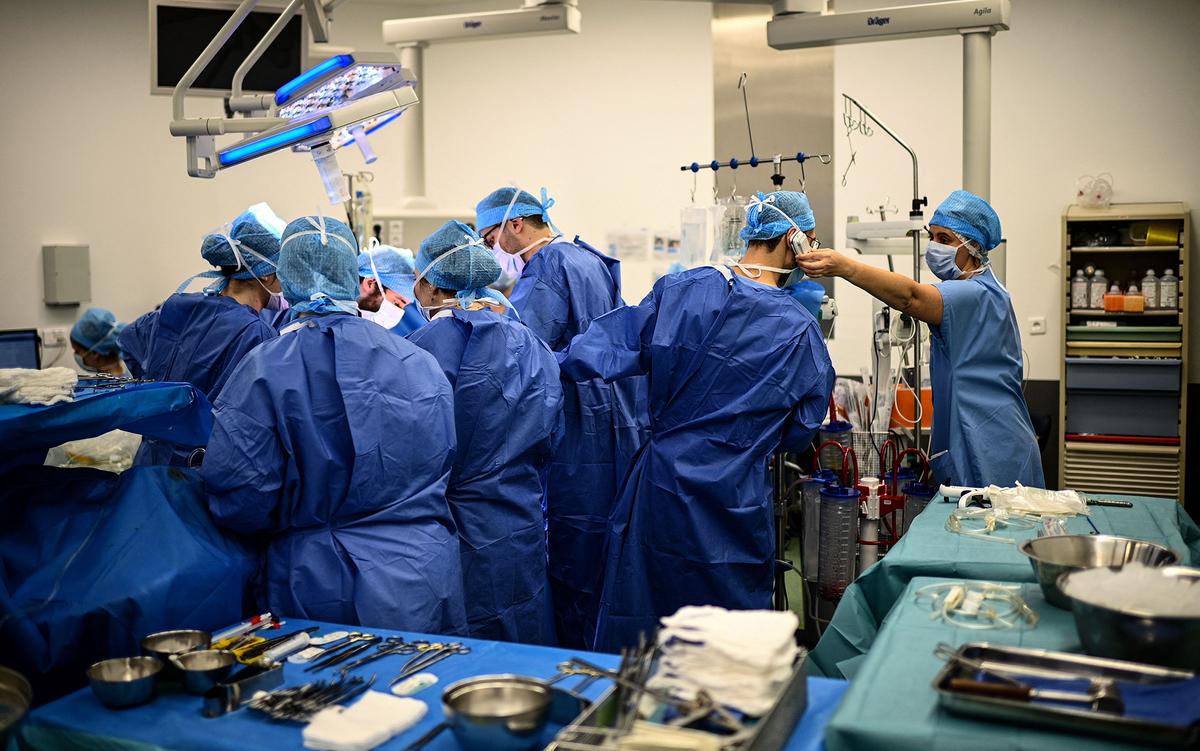Organ Donation: The Intersection of Life, Death, and AI
By The Best Newspaper Editor
Introduction
Organ transplantation has been an invaluable medical advancement, saving countless lives across the globe. However, as technology rapidly evolves, artificial intelligence’s (AI) role in organ transplant procedures raises essential considerations. In this article, we shed light on the potential consequences of an increasingly AI-driven future in organ donation.
Demystifying Death: The ASA Classification System
Traditionally, the distinction between life and death was unmistakable. However, the shifting understanding of brain death has paved the way for organ transplantation. The American Society of Anesthesiologists (ASA) developed the ASA classification system to assess a patient’s operative risk. The classification, ranging from ASA 1 to ASA 5, represented the patient’s overall health. Astonishingly, ASA 6 emerged to encompass brain-dead individuals as potential organ donors, resulting in nearly a million transplants in the United States since 1988. The concept of death has transformed, and AI’s involvement may further complicate matters.
AI’s Impact on Organ Retrieval: Impersonal Efficiency vs. Human Connection
As AI steadily integrates into medical practices, the harvesting of organs from brain-dead donors emerges as a realm susceptible to automation. While AI offers accuracy, speed, and cost-effectiveness, the impersonal nature of the procedure risks deterring potential organ donors and exacerbating the organ shortage crisis. Machine-operated retrievals devoid of human involvement may instill a sense of isolation and fear among potential donors, undermining the essential bond needed to inspire organ donation.
The Delicate Balance: Anesthesia, Vital Signs, and Organ Viability
Organ retrieval from brain-dead donors presents unique challenges, including the delicate management of anesthesia and the preservation of vital signs to ensure organ health. Brain death affects various organ systems differently, underscoring the importance of careful monitoring and prioritized medical interventions. The anaesthesiologist’s role extends beyond routine lifesaving measures, as they calibrate medication to maintain vital functions for the benefit of organ recipients.
The Human Element in Organ Retrieval: Preserving Dignity, Ensuring Consent
Amid the push for AI-based organ retrieval, preserving human dignity and obtaining proper consent are imperative. An AI-controlled operating room, surrounded by cold machines, may intensify anxieties and weaken the resolve of potential organ donors. Moreover, the use of specific medications to enhance organ viability raises ethical concerns, potentially hastening the donors’ deaths. Balancing the needs of organs and the autonomy of donors becomes increasingly critical.
A Future Impacted by AI: Prospects of Coordination and Genuine Care
The integration of AI in healthcare offers undeniable benefits, from improved precision to enhanced efficiency. However, as revolutionary as these advancements may be, they risk depersonalizing the patient experience. Medicine has witnessed periods where radical technological innovations clashed with patients’ desire for genuine, compassionate care. AI’s integration into organ retrieval could lead to a similar backlash, as patients refuse to be treated as mere objects or numbers in a system prioritizing efficiency over human connection.
The Echoes of Individuality: The Essentiality of Being Human
A critical aspect of human existence is the desire to be remembered, to occupy space within others’ thoughts and memories. Potential organ donors find solace in the idea that, after their passing, recipients may contemplate their unique personalities and retain a connection. In a world dominated by AI-controlled organ retrieval, the fear of unraveling individuality and the possibility of being reduced to a mere statistic may discourage potential donors, creating adverse impacts on organ availability.
The Future’s Challenge: Avoiding a Bleak Landscape
A looming crisis arises as AI’s role expands within organ transplantation. Potential donors, facing the prospect of their final moments guided solely by machines, may recoil at granting consent for their organs to be harvested. In pursuit of procuring organs, a medical system burdened by shortages may resort to administering potentially terminal medications to accelerate death. Safeguarding human dignity and intrinsic autonomy is pivotal to avoiding a science fiction nightmare scenario and maintaining trust in the organ donation process.
Conclusion
Organ donation carries immense philanthropic potential, anchored in the human urge to forge meaningful connections. Nevertheless, the rapid advancements in AI demand a nuanced outlook towards its integration in organ transplantation. Striking a delicate balance between efficient healthcare, patient autonomy, and compassionate care is pivotal. As discussions continue on the evolving landscape of organ retrieval, the preservation of human essence must remain at the forefront of decision-making processes.


